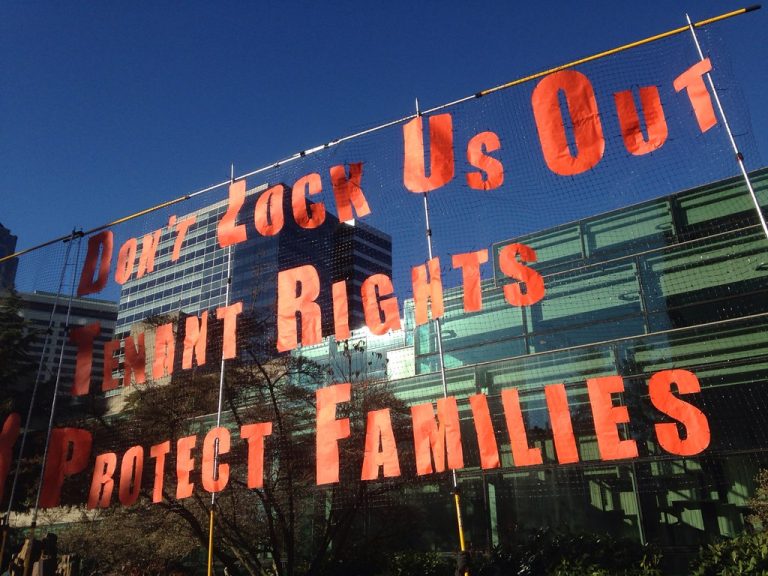Published on June 7, 2019

As the number of homeless residents soars in King County and across the state, housing and homelessness advocates have turned their attention to eviction reform as a piece of the solution. One prominent study, from the Seattle Women’s Commission, found that the vast majority of people evicted end up on the street, in shelters or living with friends and family.
“We have an affordable housing and homelessness crisis across the state,” said Sen. Patty Kuderer, D-Bellevue. “I’m interested in preventing the problem from becoming worse. … For me success will be if we at a minimum significantly slow the rate of people dropping into homelessness for nonpayment of rent situations.”
Kuderer was the primary sponsor on a raft of reforms to the statewide Residential Landlord Tenant Act that kick in at the end of July and are meant to make it harder to evict people.
It’s perhaps unsurprising that evictions are prevalent in Seattle, where housing costs have rocketed to record heights. But Seattleites are not alone in facing eviction. A recent study by University of Washington researchers found that, in 2017, 17,551 people across the state faced eviction. King County had the most that year, with 4,737 eviction cases. Pierce County had 3,219 and Snohomish County had 2,063. Even tiny Garfield County, with 2,300 residents, had five evictions on the books in 2017.
“It’s definitely a statewide issue that impacts a lot of people,” said Dr. Tim Thomas, the UW researcher and PhD Postdoc with the UW eScience Institute and Department of Sociology behind the eviction study. “Having broad-based legislation is really important. These reforms are a massive step forward.”
The centerpiece of the new regulations is an extension of the “pay or vacate” period. Currently, landlords wanting to evict sometime file a notice that gives the tenant three days to pay what is owed or move out. It’s up to the landlords to decide when to file, but they can do it as soon as the day after rent is due. If the tenant does not pay within that three-day period, the landlord files a summons to take the tenant to eviction court.
Under the new regulations, tenants will have 14 days to come up with the rent they owe.
Continue reading at Crosscut.
Originally written by Josh Cohen for Crosscut.